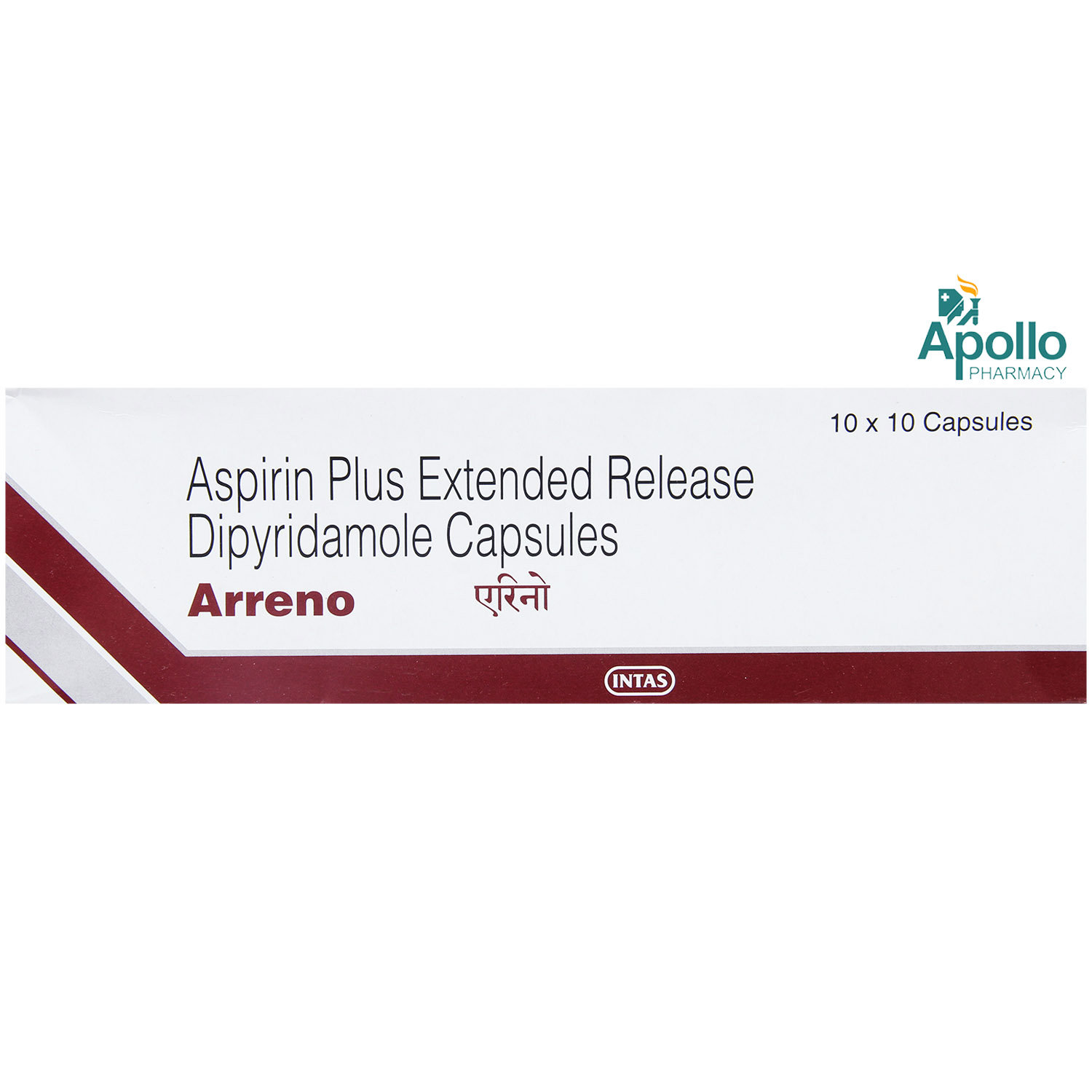Dipyridamole
About Dipyridamole
Dipyridamole belongs to the group of medicines called anti-coagulants used to prevent the formation of blood clots (deep vein thrombosis) after a stroke and/or replacement of the heart valve. Thrombosis is a blood clot within the blood vessel that limits blood flow.
Dipyridamole contains Dipyridamole, which works by preventing blood clot formation. It reduces the stickiness of platelets and helps prevent the formation of a thrombus. Thereby, it reduces the risk of having a heart attack or stroke.
In some cases, Dipyridamole may cause side effects like headache, diarrhoea, dizziness, nausea, vomiting, and muscle pain. Most of these side effects may not require medical attention and resolve gradually over time. However, you are advised to talk to the doctor if the side effects persist or worsen.
Let the doctor know if you are allergic to any components in Dipyridamole. Consult the doctor if you are pregnant or breastfeeding before taking this medicine. Dipyridamole is not recommended for children below 12 years. Keep your doctor informed about your health condition and medications to rule out any unpleasant side effects/interactions.
Uses of Dipyridamole
Medicinal Benefits
Dipyridamole belongs to the group of medicines called anti-coagulants used to prevent the formation of blood clots (deep vein thrombosis) after a stroke and replacement of the heart valve. Dipyridamole contains Dipyridamole, which works by preventing excessive blood clotting. It reduces the stickiness of platelets and helps prevent thrombus formation in the artery. Thereby, it reduces the risk of having a heart attack or stroke. Dipyridamole is used when other anti-coagulants have not worked, after grafting of arteries in the heart bypass surgery, and to prevent blood clots occurring due to the use of artificial heart valves.
Directions for Use
Storage
Side Effects of Dipyridamole
- Headache
- Diarrhoea
- Dizziness
- Nausea
- Vomiting
- Muscle pain
Drug Warnings
Do not take Dipyridamole if you are allergic to any of its components. Inform the doctor if you have/had angina (chest pain), heart problems like coronary artery disease, circulation problems, heart attack, blood clotting problems, low/high blood pressure, migraine, myasthenia gravis (rare muscle problems), left ventricular outflow obstruction, or hardening of the main artery. Consult the doctor if you are pregnant or breastfeeding. Dipyridamole is not recommended for children. Avoid alcohol consumption during treatment with Dipyridamole. Let the doctor know if you are taking any other medicines, including supplements or herbal products.
Drug Interactions
Drug-Drug Interactions: Inform the doctor if you are taking medicines for high blood pressure, irregular heartbeat (adenosine), anti-coagulants (aspirin, warfarin, clopidogrel, heparin), medicines for muscle weakness (cholinesterase inhibitors), chemotherapy agents (fludarabine), or digitalis glycoside (digoxin).
Drug-Food Interactions: No interactions found/established.
Drug-Disease Interactions: Inform the doctor if you have heart problems, myasthenia gravis, blood clotting problems, or low/high blood pressure.
Drug-Drug Interactions Checker List:
Safety Advice

Alcohol
unsafeAvoid consumption of alcohol during treatment with Dipyridamole.

Pregnancy
cautionIf you are pregnant or planning for pregnancy, consult your doctor. This medicine should not be used in the first three months of pregnancy unless advised by the doctor.

Breast Feeding
cautionDipyridamole may pass into breast milk. Consult the doctor if you are breastfeeding. If prescribed, caution is advised while administering this medicine to lactating mothers.

Driving
safe if prescribedDipyridamole is unlikely to affect your ability to drive. However, if you experience dizziness, do not drive or operate machinery.

Liver
cautionDipyridamole should be used with caution in patients with liver impairment as this medicine may cause an elevation of liver enzymes and liver failure.

Kidney
consult your doctorIf you have a history of kidney disease, inform the doctor before taking Dipyridamole.

Children
unsafeDipyridamole is not recommended for children below 12 years as the safety and effectiveness have not been established.
Habit Forming
Diet & Lifestyle Advise
- Eat a balanced diet and maintain a healthy weight by doing regular exercise.
- Manage stress with meditation and yoga.
- Drink enough fluids to avoid dehydration.
- Avoid processed foods, pre-packed foods, and unhealthy fats.
- Replace salt with herbs and spices.
Special Advise
- If you are undergoing any heart tests, inform the doctor that you are taking Dipyridamole.
Patients Concern
Disease/Condition Glossary
Thrombosis: Thrombosis is a blood clot within the blood vessel that limits blood flow. If a clot is formed in critical locations like the lungs, brain, or heart, it may disrupt blood flow and lead to an emergency. Thrombosis may occur due to damaged endothelium (inner lining of blood vessels) or slow blood flow.
FAQs
Dipyridamole works by preventing excessive blood clotting. Thereby, it prevents the risk of having a heart attack or stroke.
To treat your condition effectually, continue taking Dipyridamole for as long as prescribed by the doctor. Talk to the doctor if you experience any difficulty while taking Dipyridamole.
In some cases, Dipyridamole may cause dizziness, particularly when standing up. If you experience this, do not stand up suddenly; sit down until you feel better. Try getting up and moving more slowly.
Dipyridamole should be used with caution if you have hypotension (low blood pressure) as it may cause peripheral vasodilation and may worsen your condition.





